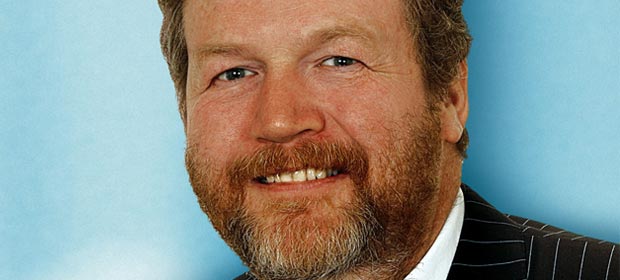Health managers will have his support for tackling inefficiencies, cutting waste and reducing expenditure in the back room, writes Dr James Reilly T.D., Fine Gael Deputy Leader & Health Spokesperson.
I have a vision for what the health service would be like in 2011 if the change of Government, which this country so badly needs, had happened.

A network of primary care centres would be under construction all over the country with centres designed to cater for the communities they would serve. Their services would include X-ray, ultrasound, endoscopy, physio and CT and MRI scans, and they would accommodate a robust community mental health service.
A waiting list initiative, based on the successful model used in Northern Ireland, would be underway to slash waiting lists. Plans would be advancing to introduce ‘money follows the patient’ to change the way hospital budgets are allocated so that hospitals would be paid based on the patients they treat, not on inflexible annual budgets. Work practices would be changing so that patients would get the best treatment in the most time efficient and cost efficient manner. And the country would be moving towards a system of universal health insurance to end the inequitable two tier health service.
The Health Minister has compounded the crime by bringing in a ham fisted redundancy programme five years too late
The reality under the present Government is very different. We are in a very uncertain position with a €6 billion Budget adjustment looming which has not yet been detailed, a four year fiscal plan which has yet to be outlined and the influence of the IMF and ECB yet to unfold. One thing is certain though, it is going to face health managers with very tough choices as health cuts are destined to form a sizeable part of that budget adjustment.
Minister Mary Harney was asked on Friday if she had any sense of shame for having been part of the Government that has led to the IMF being here. Her answer: ‘No, I don’t actually’. I suppose I shouldn’t be surprised by the shamelessness of this Government any more but it is still extraordinary at a time like this that there is no level of remorse evident.
Remorseful
I foresee that Minister Harney will have a lot to be remorseful about in 2011. The same symptoms of the systematic dysfunction in the health service will persist and get worse. High numbers on trolleys in Emergency Departments. An average of over 330 patients have been experiencing this on a daily basis so far in November.
Operations will continue to be cancelled in their thousands. Eighteen thousand were cancelled in 2009 and the number has been increasing by 10 per cent a year since 2007. The delayed discharge of older patients to long term, rehabilitation, convalescent or community care will continue to see acute bed days lost which contributes to bottlenecks in EDs and cancelled operations.
Sadly, we are facing a situation where the excellent staff of the health service will be tested to their limits and patient services will continue to be curtailed.
I believe strongly that the excellent people we have in the health service can help protect the delivery of front line services to patients during this difficult time
Because of the level of uncertainty about the country’s future, it is impossible to give an absolute road map of where we are headed when we don’t even know where the pot holes are.
However, Fine Gael is determined that further cuts to the front line must be avoided. I am in no doubt as to the difficulties which the coming year will pose for health managers. They will have my support for tackling inefficiencies, cutting waste and reducing expenditure in the back room.
I believe there are significant savings to be found in this way. The €92 million spent on agency staff in one year, the €121 million spent on taxis since 2006, the €200 million which could be saved by the introduction of drugs reference pricing – all these must be in line for serious consideration. The annual spend on non-core pay such as premium, overtime and on-call pay is €1 billion. The payroll cost of absenteeism is approaching €300 million. These thorny issues must be confronted. This means negotiating, consulting, compromising and engaging with all stakeholders, but always with the understanding that the key stakeholder is the patient.
Pay is protected by the Croke Park agreement but this does not mean that savings cannot be made and front line services protected. It is obvious that reducing payroll without cutting pay means reducing numbers. The Health Minister not only failed to address numbers of staff in the health service during the creation of the HSE, she has compounded the crime by bringing in a ham fisted redundancy programme five years too late. There must be a structured voluntary redundancy programme along the lines that Fine Gael envisages in Reinventing Government. (http://www.finegael.ie/upload/ReinventingGovernment.pdf)
I believe strongly that the excellent people we have in the health service can help protect the delivery of front line services to patients during this difficult time. In the short term we must accept that doing more with less is a challenge that we have to face. Addressing inefficiencies and the blockages created by ineffective bureaucracies will make this easier. But in the longer term a radical reform of the health service as proposed in FairCare (http://www.finegael.ie/upload/file/FairCare.pdf )and sweeping change in the way Government services are run generally are essential to allow the public sector to play its key role in rebuilding Ireland. The ultimate aim in health is creating a service where patients feel safe and workers feel proud to be part of it.

